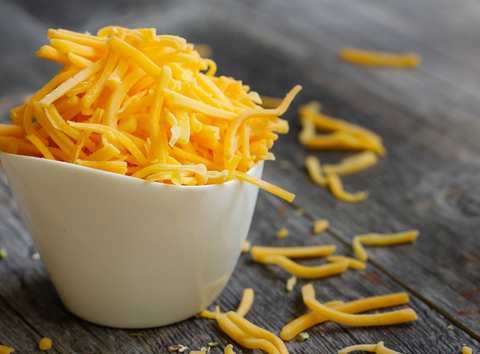Help, My Cat is a Picky Eater!

How to tell if your cat is actually a picky eater
The cat stereotype is that they are quite aloof and picky with their likes and dislikes. This can often extend into your cat being a picky eater. What are some of the signs that your cat is a picky eater?
- Takes a very long time to finish meals
- Decides he doesn’t like certain foods all the time, even if he liked them before
- Will only eat one type of food (this often happens when they get hooked on unhealthy kibble)
- If your cat doesn’t eat his regular meals but will beg for treats or table scraps
Watch out for any significant changes in your cat’s mood or appetite, because that could be a sign that there is something more serious going on. Also, if your cat suddenly a picky eater, it is probably time for a visit to the vet!
Do you have a picky pup? Read our blog about picky eating in pups!

Reasons your cat may be fussy
Too much variety in terms of cat food options could actually be contributing to your cat’s picky behaviours. Many people believe that some cats get overwhelmed by too much choice!
If you only raise your cat on dry, unhealthy kibble, he will likely turn their nose up at other more healthy food options. VMD Deborah Lichtenberg compares this to feeding kids junk food: “If your kids eat chicken nuggets and French fries, offering them a diet of high-quality protein and vegetables is not going to be easy.”
Your cat could be reacting to a change in environment and you don’t even know it, but it’s not letting them eat comfortably! This could be as simple as changing where they get their food in the house. It could also be a more serious environmental change like welcoming a new addition to the family.
Even overeaters can be considered finicky as they often only eat a specific kibble and again cats can get easily hooked on low-quality dry food. This problem often stems from the fact many cat owners free-feed their cats, meaning there’s always a full bowl of dry food waiting for them. So whether you have an underweight cat or a cat that requires some serious weight loss, he could be considered a picky kitty.
The cat is getting treats from somewhere else! A lot of cats have multiple parents, and one (or more) may be guilty of treating him to additional table scraps or human food while cooking. If a cat learns he can get his paws on food this way, it could impact his normal eating habits.
Tips for helping your fussy eater cat eat

Make your cat a feeding schedule
If your cat is a picky eater, try out a consistent feeding schedule as opposed to free-feeding. Your cat will take a while to adjust. Try feeding your cat 4 to 5 times a day at the start (2 to 3 times a day normally) and only offer them the food for 15 to 30 minute time periods. Take any remaining food away so that your cat gets used to the idea that the food will disappear if it’s not eaten.
Add extras on top of kibble
There are lots of food topper options, including wet cat food for picky cats (lots of brands advertise for this), human ingredients, or fresh pet food. Fresh food is another good option because it is often tastier and has healthier ingredients. Kafka’s offers some amazing meals, including Lamb Affair or Ocean Fish Feast -- both recipes are finicky feline approved!
Try feeding food at room temperature
If the cat food is wet or mixed kibble and topper, make sure it is served at room temperature or even slightly warmed up. This is because cold cat food often loses its aroma, which can turn cats off, especially picky ones. Get some smells going by warming up the food a bit and you’re more likely to have an accepting cat.
What are some of the foods that picky cats enjoy?
We’ve put together a quick list of some healthy foods you can try and incorporate into your picky cat’s diet!

Beef or chicken broth
Meat broths (or even veggie broths) are a great, tasty way to entice your kitty to keep hydrated. Many cats don’t actually drink enough water on their own! Just make sure that whatever broth you’re feeding, it is low-sodium.

Blueberries
These small berries don’t only taste good, they can also provide cats with healthy antioxidants and Vitamin C. If your cat will eat blueberries, this superfood is amazing as an addition as they’re high in fiber and low in fat. Try feeding your feline small, frozen blueberries!

Cheese
Lots of cats are huge fans of cheese and although some cats are lactose-sensitive, many are okay with small portions of cheese. Stick to choices like cottage cheese, cheddar, and gouda, but avoid ripened cheeses like brie or camembert. Be sure to control portions here because it is high in fat and salt.

Sardines
These smaller fish usually come canned or frozen and are a great source of protein and omega-3 fatty acids. This is a favourite among cats and hopefully will have your picky cat coming back for more. Some cats need sardines that are chopped up to make them easier to eat.

Salmon
Many humans love salmon and so do most cats! This fish is another amazing source of protein and omega-3 fatty acids. It is often a key ingredient in commercial pet foods, so why not go a step further and feed it to your cat in a more natural form?

Scrambled eggs
Eggs are a great source of nutrition for cats and a tasty treat. When you’re making scrambled eggs (with cheese), you can set aside a small amount to cool off and feed it to your kitty. Avoid using salt and pepper.
Homemade food for cats
When you make food for your cats, there can definitely be benefits! You pick the ingredients and choose how it’s prepared. In many commercial pet food brands, this is the opposite -- there's a chance ingredients are unnecessary and low quality and that the recipes use lots of fillers.
That being said, it takes a lot more research, time, and preparation to ensure that the food your cat gets is nutritionally balanced and appropriate for your specific pet. Homemade cat food is a great option for cats with allergies, sensitive tummies, or who have parents who are skeptical about regular food brands. If you want to go this route, you must put in the extra work!
The general rule of thumb is 83%-85% muscle meat, 5%-10% organs, and 7%-10% bone. You’ll need to pick high-quality ingredients to meet your cat’s needs and use supplements to bridge any gaps.
If you plan to feed your cat mainly or only the food you make (vs. just as a supplement), then it is extremely important to pick the proper recipes. Talk to your vet or a pet nutritionist to ensure that your homemade food is giving your cat everything it needs to live a long, healthy life!
Also read How to Choose A Healthy Dog Food or Cat Food

Fresh food for finicky cats
Homemade cat food may be a good solution for you if you have a picky pet, however you may not have the time to invest the time and required research into it. That’s where Kafka’s Organic comes in! We offer pet food subscription service for cat and dog parents in and around Vancouver. Our fresh cat food meals are vet-approved, meet AAFCO guidelines, and delivered right to your doorstep.
Fresh food not only tastes really amazing, Kafka’s recipes also include healthy, human-grade ingredients. Best of all, our fresh pet meals are versatile and can be used as a full meal, meal mixer, or meal topper!
In addition to being appealing to your picky cat, feeding fresh food has a lot of benefits, including:
- Better skin and shinier fur from the Omega-3 fatty acids
- More energy
- Easier to digest, which means better poops
- Boosted immunity from antioxidants and vitamins
- Helps pets stay at a healthy weight
- Adds important moisture to their diet
Read more about the benefits of fresh compared to kibble or raw diets
We have a lot of options for picky pets as well as those that are prone to allergies or who have sensitive tummies. If you’re not sure how to start, you can use our feeding calculator that will give you more info about feeding your pet fresh food.


Leave a comment